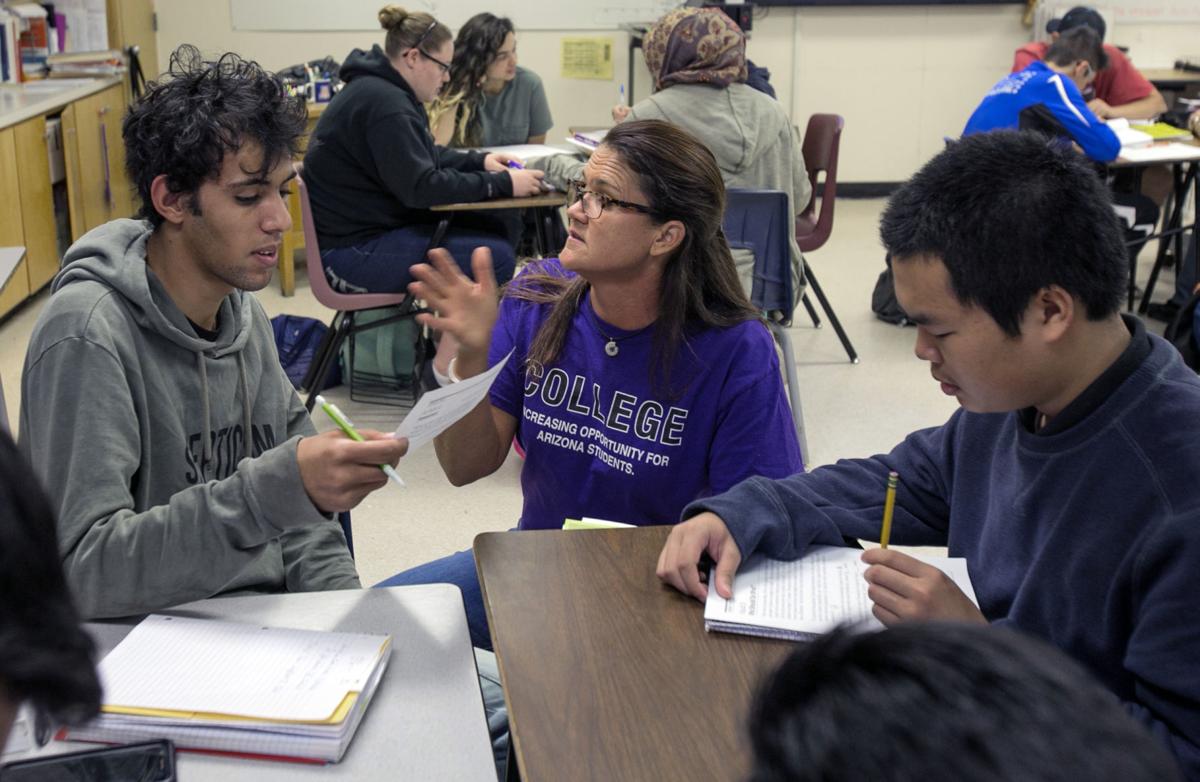After a controversial economics class with ties to the Koch network slipped into four high schools without proper vetting or approval, Tucson’s largest school district is dropping the class.
The Tucson Unified School District Governing Board voted Tuesday to retroactively approve Philosophy 101: Ethics, Economy, and Entrepreneurship, and allow students who are enrolled in the class, or who previously completed it, to earn credits towards graduation requirements.
But the board, in a 4-1 vote, agreed that in lieu of a separate vote to formally approve the class going forward, it should be automatically canceled after this year.
Still, backers of the class aren’t giving up, saying they’re going to try to save the course in TUSD, this time going through the proper channels and getting approval from the district governing board beforehand.
The class is offered as a dual-credit college course developed in partnership with the University of Arizona’s Center for the Philosophy of Freedom, better known as the “Freedom Center.”
The Freedom Center receives funding from Charles Koch and other Libertarian-minded donors, some of them unnamed, as well as from a special appropriation from the Legislature.
The class is taught at Tucson, Rincon, Pueblo and Cholla high schools.
Cholla offers it only as an elective, which does not satisfy the requirement for a high school economics credit. The other three TUSD schools allow it to fulfill state requirement that high schoolers take at least one economics class.
At least three other public school districts in Pima County — Amphitheater, Sahuarita and Vail — along with some private and charter schools, offer the course, either as an elective or to meet a core requirement for graduation. But unlike TUSD, all of those other public school districts say the class was vetted and approved through the proper channels.
Stacia Reeves, who teaches the course at Rincon, noted that the dual enrollment class is different from an advanced placement course because it takes a college level course and spreads it out over a full year, which is less intimidating for students like English language learners.
“Let’s give some of our students who have multiple learning styles an opportunity to have this rigor in order for them to know they are college-ready,” she said.
And she noted that the state’s new A-F letter grades place a heavy emphasis on having students college and career ready, and keeping the course would help boost schools’ scores.
Mario Villarreal-Diaz, formerly of the Freedom Center but now an associate professor of ethics, economy and entrepreneurship at the UA’s department of political economy and moral science, which houses the Freedom Center, said the course seeks to empower students and teach them about what it takes to be an ethical business person.
And he told the Governing Board that while the introduction at TUSD was flawed, the controversy is misplaced, and he hopes the board will revisit the issue.
“We commend you as the leadership for finding a way to protect those students who have already taken the course, and more importantly, we look forward to working with you in following due process so this course remains as part of the overall advanced learning TUSD offerings,” he said.
Board members signaled that they may be willing to hear them out.
Board member Rachael Sedgwick noted that after learning more about the class, it seemed like the controversy surrounding it was overblown, and that the only real issue was about the textbook, which was developed by professors with ties to the Freedom Center, and which district auditors said would be not be balanced enough on its own to satisfy state requirements.
“Now that we have a lot more information about the course and what goes on in the classroom, I’m much more willing to have a more robust conversation about it,” she said.
But board member Adelita Grijalva, the only board member to vote against the proposal, said she still had concerns about how the book ever got into classrooms.
Grijalva noted that the district never purchased enough books to have them in four schools.
“My concern is if any other textbooks got into our classrooms, who purchased those and how did they get in there? Because that’s a major problem,” she said.
“I don’t want to punish these students who are participating in the classes, because none of this is their fault. But I have a real problem with the process and how we got to this point.”





